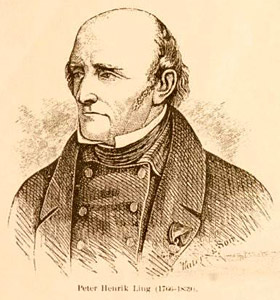By Stephen McCarthy, The McCarthy Project
 In today’s world of technology and organized sports, our young people have become more inactive than previous generations. Who remembers going to building a tree fort for hours and then climbing the tree to get to it. Playing pond hockey for hour after hour after hour. Playing basketball in the driveway in the winter time for hours.
In today’s world of technology and organized sports, our young people have become more inactive than previous generations. Who remembers going to building a tree fort for hours and then climbing the tree to get to it. Playing pond hockey for hour after hour after hour. Playing basketball in the driveway in the winter time for hours.
Peter Ling in his 19th century work called Home Gymnastics says,
“It is a fact that a person who likes and practices physical exercise has purer habits of life, and-greater power of resisting temptation, than a person who is physically weak and effeminate, and who gives himself up to unsound enjoyments and expensive but injurious habits.
Daily physical exercise suppresses the morbid craving for pleasure; a right amount of physical work produces a sense of satisfaction and a happier frame of mind, through which nervousness and the feeling of discomfort are banished. “Happiness is the best nerve tonic.
A person who is bodily and morally strong is usually good-natured ; he is not easily excited, and his temper is far more under control than that of a person who is weak and delicate. He is free from cowardice, and scorns everything false and ugly, every fraud and deception in word or action; he values honor and loyalty, honesty, and the sense of duty. He is not susceptible to small complaints, sentimentality, or fussiness. A person bodily and morally weak is mostly occupied with thoughts of his health; if he can endure this or that exertion, whether he can digest this or that food; how he must dress in order not to take cold in the house or outside. He loses all power of endurance, enjoyment of life, and confidence in himself. He causes his friends inconvenience and anxiety, while a strong and sound person is of use to his neighbors.
Parents and teachers should avoid too much cautiousness in the education of children; they ought not to keep children confined to the house for a slight cold, catarrh, or headache; physical exercise in the open air is often the best remedy.
Young people should be instructed in the significance and care of all the different organs of the body, including the development, significance, and hygienic care of the generative organs; they should know of the harm they can inflict upon themselves through care lessness and ignorance.
Young people should learn first and foremost for their own sakes, but also from a purely national point of view, how to take care of their bodies and health, so that they may have a real foundation of physical and moral strength when they become older, and in their turn build a home and family. We should remember that the moral power of a nation ultimately depends upon the moral strength of the individual and the home, and that good examples are of the great est importance in education.” pg. 20-21
We as a society must find a way to return to our ways of building moral and physical health, to increase our young people’s activity level outside of organized sports and organized, periodized strength training. Their future and the future generation’s happiness and quality of life depend on it.

Thank you for your sharing. I am worried that I lack creative ideas. It is your article that makes me full of hope. Thank you. But, I have a question, can you help me? https://www.binance.info/pl/join?ref=PORL8W0Z